Bitcoin – The Death & Rebirth of Trust
.avif)
In this article:
If you’re anything like us, Bitcoin represents far more to you than simply an ‘investment vehicle’ you can use to become wealthy.
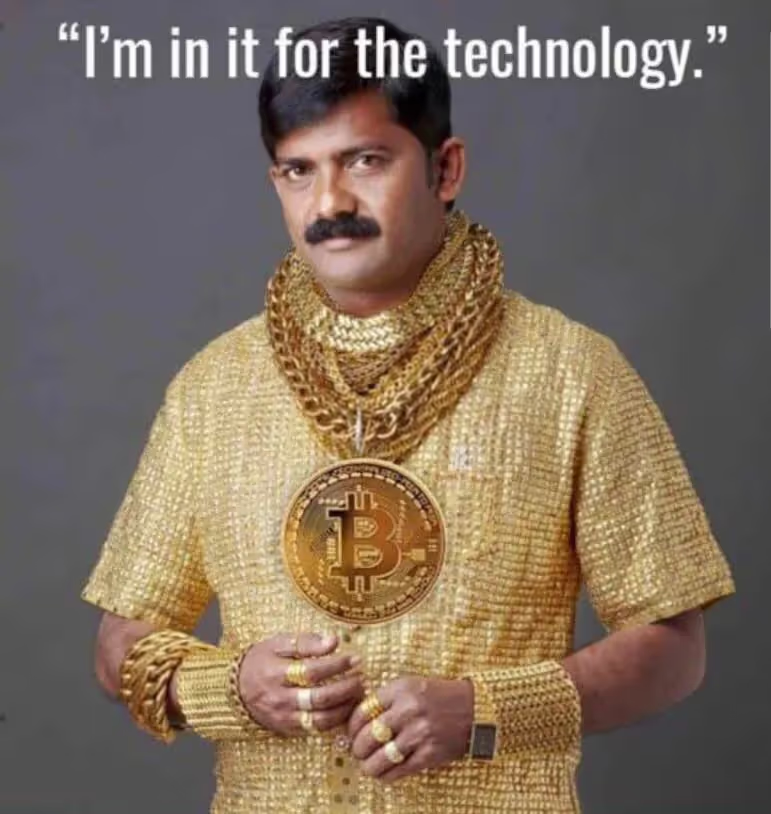
As we often discuss in these weekly newsletters, Bitcoin can do far more than just make you rich. It can help you become self-sovereign. By being in 100% control of your wealth, and by storing it in a currency that no-one can debase, you become harder to coerce, harder to control, and harder to manipulate.
Sound money that’s peer to peer and censorship resistant is an incredibly powerful tool. One that if used correctly can significantly increase your individual freedom.
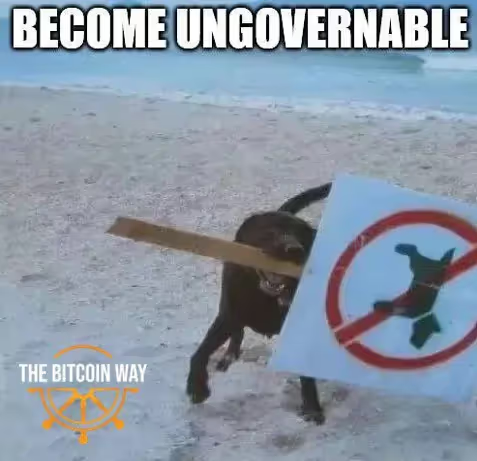
But perhaps even this more nuanced understanding of Bitcoin is still too narrow in scope. It only considers how Bitcoin allows individuals to become more self-sovereign. It doesn’t describe what impact a growing population of sovereign individuals might have on society at large. What will the second order effects be of creating a more ungovernable population?
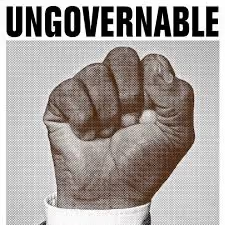
To some, the idea that people might become more ‘ungovernable’ sounds a bit worrying. What could that mean for society? If Bitcoin successfully puts an end to the state’s money printing, that means it will have fewer resources to maintain ‘law and order’. Does that mean that Bitcoin could herald a ‘Mad-Max’ style future?
Without a giant state apparatus to control everyone, will we end up living in a world where selfish individuals ruthlessly compete over finite resources with zero compassion for their fellow man?
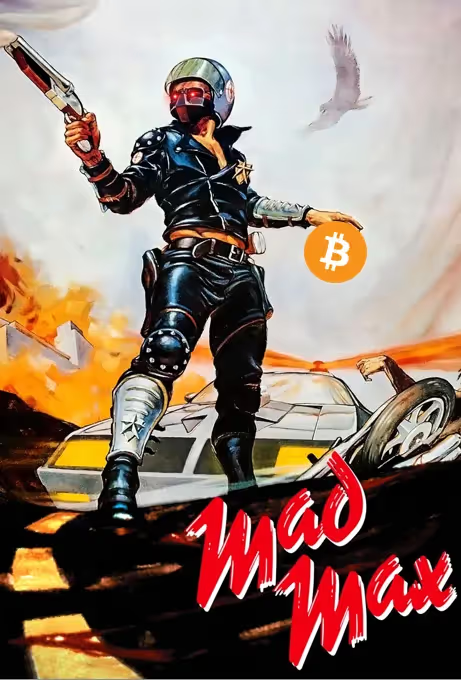
It’s inevitable that Bitcoin will eventually eliminate the state’s ability to create money. In turn this will greatly reduce the state’s currently overwhelming power to coerce people and interfere with their lives. While this doesn’t necessarily mean that a ‘Bitcoin standard’ will result in total anarchy, it’s certainly a step towards it. The question is, is this a good or bad thing?
While it’s important you stay focussed on your own Bitcoin strategy, it would be unwise to completely ignore what impacts a global transition to Bitcoin might have on the society around you. Prioritising your own interests is sensible, but as they say, no man is an island.

This week let’s take a break from staring at big green candles and explore what a society of sovereign individuals might look like, as we continue to prepare ourselves as best as possible for the future we face.
Bitcoin – Killing Trust to Re-Imagine Money
Satoshi recognised that one of the biggest flaws of fiat currency is the trust required for it to work.
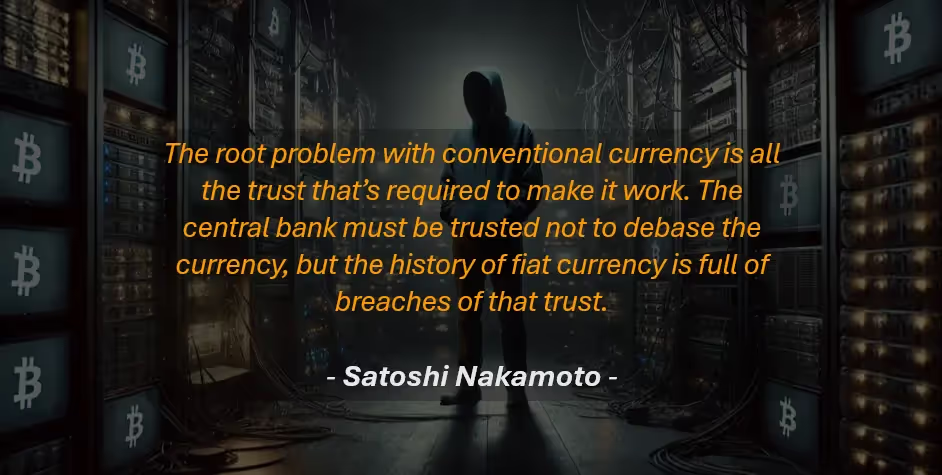
When trusted to manage the money supply, Central Banks and Governments will always eventually steal from everyone by debasing the currency. By printing money, they enrich themselves and their friends at the expense of the rest of society. This behaviour is ultimately completely destructive, yet history shows that no government or bank can resist the temptation.
Satoshi’s solution to this pervasive problem was to ensure that Bitcoin’s issuance would be controlled by nobody, while its circulating supply remains verifiable by everybody. By making Bitcoin completely transparent, Satoshi created a system that you can trust completely, because you no longer need to trust it at all.

But just because there are no rulers in Bitcoin doesn’t mean there are no rules. Just because there is no trust required for Bitcoin to work doesn’t mean you can’t trust it. What Satoshi managed to create with Bitcoin was a very careful balance of incentives that ensures everyone on the network remains a good actor without the need for any coercion.
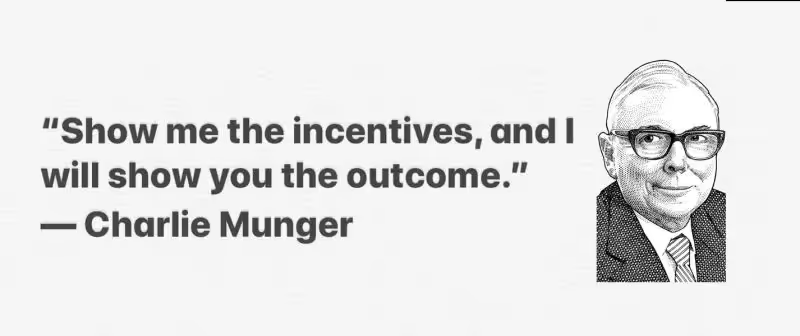
Bitcoin’s incentives ensure that everyone on the network plays by the rules because doing so aligns with their own self-interest.
Miners who validate transactions and secure the network will only be rewarded with newly minted Bitcoin if they correctly follow the protocol. If they attempt to cheat by altering transactions, they will end up spending a fortune in energy to mine new blocks that the rest of the network ultimately rejects anyway. Similarly, users and node operators maintain the rules because deviating from them would render their Bitcoin worthless or un-spendable.
On the Bitcoin network, trying to cheat simply isn’t worth it.
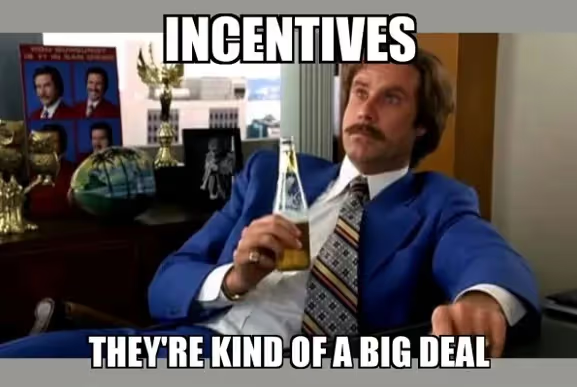
Satoshi’s carefully crafted structure of incentives ensures that good behaviour is rewarded, while bad actors are swiftly neutralized. Honesty is both the most rational and the most profitable path to follow.
What’s interesting about this is that it demonstrates quite clearly that when incentives are properly aligned, people can behave in a way that benefits both themselves and others, even in a system completely devoid of any centralised governance. Rules without rulers, order without coercion.
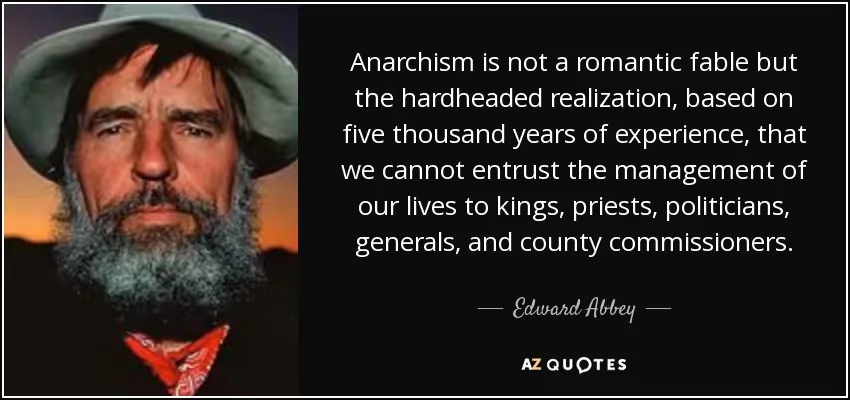
In Bitcoin’s case at least, anarchy didn’t result in total chaos. In fact, it resulted in quite the opposite.
Natural Vs Man-Made Incentives
It’s interesting that the word anarchy has long been associated with things like chaos, violence and disorder. It’s probably fair to say that most people attach negative connotations to the word.

But what Bitcoin might encourage us to see is that a ‘situation in which there is no organisation and control’ can still be one where people behave in each other’s and their own self-interest. Just like with the Bitcoin network, it all depends on the incentives.
What we shouldn’t readily accept is the absurd notion that we need enormous governments to centrally plan and design these incentives for us. We should recognise that believing you could centrally plan and manage all the intricate incentives that make up a functioning society and economy is the epitome of hubris.
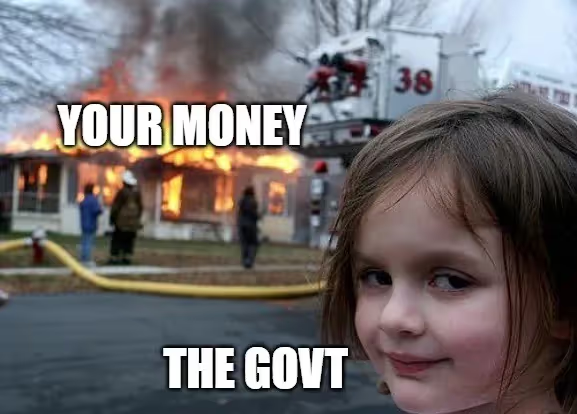
On a Bitcoin standard there’s every chance that the net effect of smaller government is that collaborative incentives emerge naturally all by themselves. After all, is it not more likely that people would coalesce around a consensus of stability and peace rather than chaos? Perhaps without government interference we might achieve more of both.
Someone who shares a particularly interesting analogy that supports this viewpoint is American economist and statistician Milton Friedman when he describes the kind of impersonal free market incentives that result in the creation of the simple but incredibly useful lead pencil:
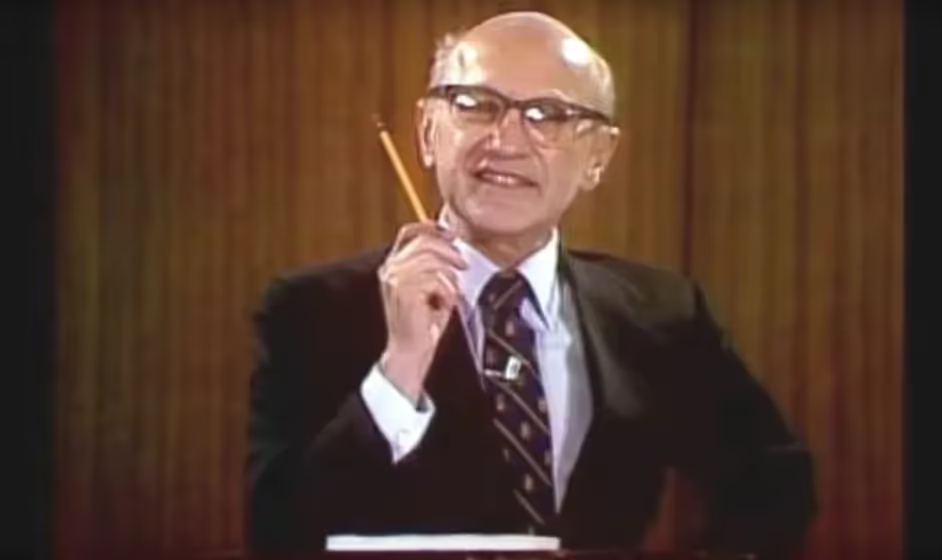
"Look at this lead pencil. There’s not a single person in the world who could make this pencil. Remarkable statement? Not at all. The wood from which it is made, for all I know, comes from a tree that was cut down in the state of Washington. To cut down that tree, it took a saw. To make the saw, it took steel. To make steel, it took iron ore. This black center—we call it lead but it’s really graphite, compressed graphite—I’m not sure where it comes from, but I think it comes from some mines in South America. This red top up here, this eraser, a bit of rubber, probably comes from Malaya, where the rubber tree isn’t even native! It was imported from South America by some businessmen with the help of the British government. This brass ferrule? I haven’t the slightest idea where it came from. Or the yellow paint! Or the paint that made the black lines. Or the glue that holds it together. Literally thousands of people co-operated to make this pencil. People who don’t speak the same language, who practice different religions, who might hate one another if they ever met! When you go down to the store and buy this pencil, you are in effect trading a few minutes of your time for a few seconds of the time of all those thousands of people. What brought them together and induced them to cooperate to make this pencil? There was no commissar sending out orders from some central office. It was the magic of the price system: the impersonal operation of prices that brought them together and got them to cooperate, to make this pencil, so you could have it for a trifling sum.
That is why the operation of the free market is so essential. Not only to promote productive efficiency, but even more to foster harmony and peace among the peoples of the world."

Perhaps then there is far more to get excited about than just your increasing purchasing power. Perhaps what we can look forward to on a Bitcoin standard is a more harmonious world. When people are left to freely transact with one another without interference from an incompetent and often nefarious Government, we might find that it’s actually easier to collaborate with others.
The truth we collectively lost sight of during the money printing bonanza of the past 50 years is that politicians are not supposed to be our ‘leaders’. Their role is simply to be public servants who busy themselves with problems like fixing potholes and making trains run on time. We want competent administrators not leaders, we can lead ourselves. As for the free market? Well, it’s perfectly capable of taking care of itself.

Thankfully, on a Bitcoin standard, the government won’t have the unfettered ability to print money and turn itself into a self-serving monolithic superstate. On a Bitcoin standard there will be room for natural incentives to emerge that encourage people to become voluntarily collaborative, more productive and dare we say it, happier.
Rather than some crazy Mad Max style dystopia, maybe the future on a Bitcoin standard could be a much more harmonious and productive one.
A Bitcoin Standard - The Storm Before The Calm
This week’s newsletter has painted a very rosy picture of the future where life on a Bitcoin standard is one of small governments and natural incentives that emerge to encourage peace and collaboration.
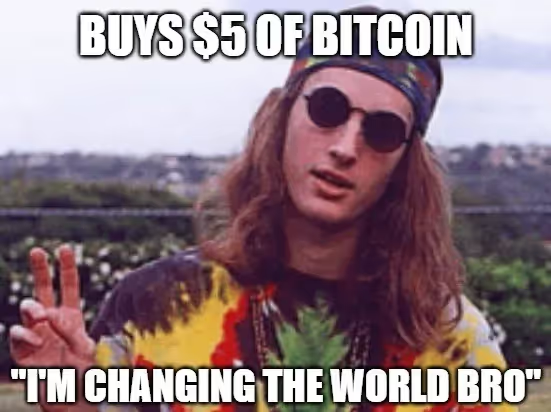
It's certainly a wonderful thought, and on a long enough timeline a Bitcoin standard may well usher in a brand-new world of peace, prosperity and freedom. How long that takes however is another question entirely.
We should be careful not to get too carried away. Bitcoin is many things, but it’s not a magic wand. If the world does transition from fiat money to a Bitcoin standard over the next few decades, then the long-term outcomes might be wonderful, but the short-term effects could be extremely turbulent.

Remember that governments don’t shrink overnight, and better incentives can’t emerge immediately. We may find that during the transition from monopoly money to sound money that things get a little bit more chaotic before becoming more peaceful. The changes that are coming are not necessarily going to be popular right away and there is a strong likelihood that the greatest wealth transfer in human history results in some noticeable friction.
If Bitcoin succeeds, then the economy will be restructured dramatically. People storing their wealth in precious metals, stocks, bonds and real estate are likely to find the inevitable revaluation of these investments traumatic and confusing. While society will benefit in the long term, a lot of people may suffer in the short to mid-term.
With that in mind, it makes sense that a diligent Bitcoiner prepares themselves for both a bright future, but a bumpy ride along the way.
Prepare Properly for A Bitcoin Standard
With a Bitcoin standard looking increasingly likely it makes sense to diligently prepare for what’s on the horizon. A future of increased freedom and independence is an extremely exciting prospect, but it doesn’t come free of charge. It requires you to put in some proof of work.

Your personal freedom is directly correlated to how much personal responsibility you are willing to take. If we truly want to live freefrom the coercion and control of a nanny state, then we must become self-sufficient. We must be prepared and capable enough to secure and look after our own interests. We must learn to rely on ourselves rather than third parties.
That’s what The Bitcoin Way is designed to help you with. We help you develop the skills to secure your Bitcoin in full self-custody with zero counterparty risk, improve your privacy and cyber security, and develop Plan-B residency strategies.

If you’re ready to master the skills required to become self-sovereign and adapt to a Bitcoin standard, then there’s no better time to start your journey than today. Book a free 30-minute consultation with one of our experts and let’s get your training started!
